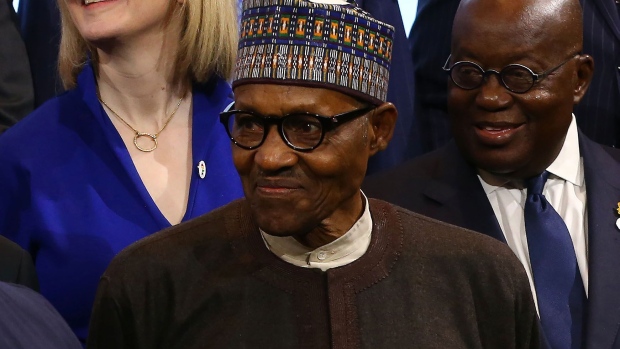Aug 26, 2020
Nigerian Leader Presses Regional Body to Secure Mali After Coup
, Bloomberg News

(Bloomberg) -- West African leaders preparing to meet Friday to discuss the political crisis in Mali must address the threat to security posed by Islamist militants, Nigerian President Muhammadu Buhari said.
The Economic Community of West African States is leading efforts to install a civilian administration in Mali after the military overthrew President Ibrahim Boubacar Keita last week. His ouster has left a power vacuum in a nation that’s a linchpin in counter-insurgency operations on the southern fringe of the Sahara desert.
“About two-thirds of Mali is occupied by terrorists, and it makes common sense to secure the country,” Buhari said in a statement Wednesday after meeting with his predecessor Goodluck Jonathan, who is Ecowas’s chief mediator on Mali.
Jonathan led an Ecowas delegation to the Malian capital, Bamako, that met with the junta at the weekend. The regional bloc proposed an interim government, led by a civilian or retired military officer, that would last a maximum of 12 months. The junta proposed a three-year transition, the Nigerian presidency said.
France is also concerned about the impact the coup will have on its military operations in the region, Jeune Afrique reported, citing French Foreign Minister Jean-Yves Le Drian. There are 5,000 French troops fighting Islamist militants in the Sahel, alongside more than 13,000 United Nations peacekeepers in Mali alone.
READ: France Wants Mali Military Mission to Remain, Jeune Afrique Says
Keita, 75, was elected to office in 2013, just over a year after his predecessor, Amadou Toumani Toure, was himself ousted in a coup. That putsch was staged from the same barracks where last week’s mutiny started, and organized by junior officers frustrated by the lack of resources deployed to fight Tuareg separatists. The subsequent instability was exploited by al-Qaeda-linked Islamist groups, who seized control of the north.
French President Emmanuel Macron has called for the release of Keita, who has been detained by the military since Aug. 18, and a return to civilian rule. Many Malians celebrated the coup, which came after weeks of popular protests calling for Keita’s resignation.
The junta refused to return Keita to his personal residence because he could travel abroad and “not return to answer questions they may have for him,” Jonathan was quoted as saying in the Nigerian presidency statement.
©2020 Bloomberg L.P.